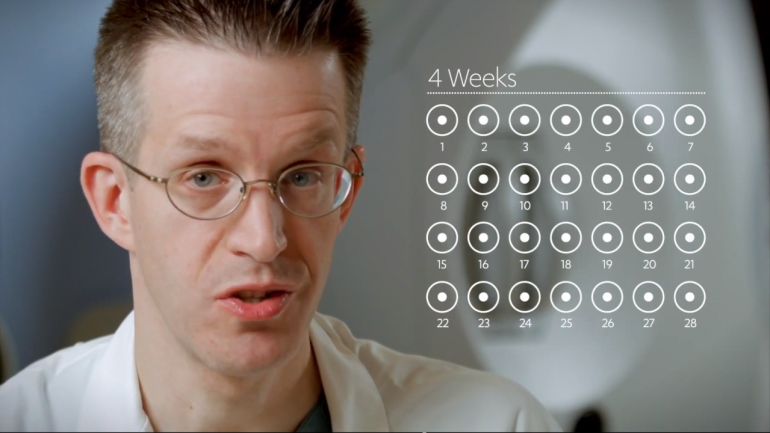Two heads of Sunnybrook Health Sciences Centre and Ryerson University have received $100,000 for their clinical technique that helps chemotherapy recipients to know if their tumour is responding to treatment. The technique is called “WaveCheck.”
The funding comes from a $100,000 catalyst grant from the Ontario Institute for Cancer Research (OICR). Previously the duo behind WaveCheck raised over $53,000 on Indiegogo, during a flexible platform in which the targeted funding of nearly $97,000 wasn’t met, but all funds raised were kept. That campaign was in partnership with MaRS Innovation.
WaveCheck is a clinical technique that was invented, refined and tested by scientists at Sunnybrook Health Sciences Centre and Ryerson University over 20 years. It aims to show whether chemotherapy is destroying a breast cancer tumour at the beginning of chemotherapy treatment (in as little as four weeks), rather than at the end of treatment (typically four to six months).
In early clinical testing, the non-invasive, image-guided WaveCheck technology has shown promise as an “accurate, efficient way to monitor tumour response, opening the door to tailored treatment.”
“This is a significant step towards achieving the goal of personalized medicine. The clinical trials will confirm that information provided by WaveCheck can determine if the treatment is the appropriate one or that other options should be chosen, sparing patients the side effects of treatments that will not likely be successful,” said Dr. Tom Hudson, OICR’s president and scientific director. “If successful, WaveCheck could become a standard tool in the cancer treatment of the future.”
WaveCheck’s crowdfunding campaign was previously recognized in The Globe and Mail‘s Report on Small Business’ Top 10 list for the most financially successful Canadian crowdfunding campaigns on both Kickstarter and Indiegogo.
WaveCheck has been used in clinical studies with over 150 women and its first results were published in Clinical Cancer Research and Translational Oncology. The technology aims to “create greater transparency through dialogue between breast cancer patients and their doctors,” empowering them to participate in discussions about whether a given chemotherapy treatment is effective.
“If these clinical studies replicate the early studies, we could use this technology to monitor tumour response early in treatment and to predict which patients will continue on in their therapy to have a complete pathological response,” said Dr. Wei Yang, a professor at The University of Texas MD Anderson Cancer Center. “On the other hand, for patients in whom the test indicates a poor response to treatment, the regimen could be changed to a more efficacious one.”


